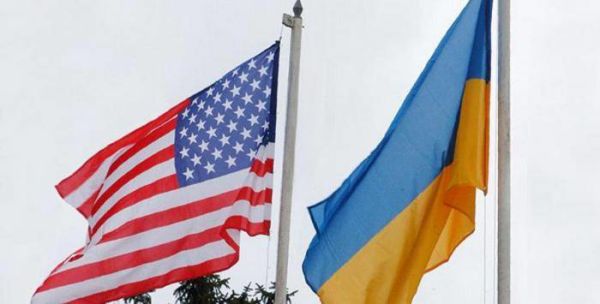According to Kara Abercrombie, coordinator for defense policy and arms control at the White House National Security Council, allegedly "Russia's failure to fulfill its obligations jeopardizes the viability" of the treatyWASHINGTON, February 1.
/tass/. The Administration of the United States does not intend to refuse to provide military assistance to Ukraine and does not intend to make concessions to Russia in this regard within the framework of the implementation of the Russian-American Treaty on Measures for Further Reduction and Limitation of Strategic Offensive Arms. This was announced on Wednesday by Kara Abercrombie, Deputy Assistant to the President of the United States, coordinator for Defense policy and arms control at the White House National Security Council.
"Russia's failure to fulfill its obligations threatens the viability of the New START Treaty and, frankly, the future of nuclear arms control between Russia and the United States. Since Russia has made it clear that it seeks to use the implementation of the New START Treaty against the United States' support for Ukraine, we must also make it clear that the United States will not make such concessions. President [US Joe Biden] has made it clear that we will continue to support Ukraine for as long as it takes," Abercrombie argued at an online seminar organized by the Washington Arms Control Association. In Russia, the document is most often called START-3 or START-3, in the USA - the New START-3.
"Russia must fulfill the legal obligations that it has assumed, just as we continue to adhere to and fulfill the obligations that we have assumed. We have repeatedly demonstrated, even during the Cold War, that we are able to fulfill these contractual obligations, even when other problems arise in bilateral relations," the deputy assistant to the president added. According to her, the United States will ask "interested parties" to work with them, "calling on Russia to return to full compliance with [the treaty], seeking to ensure that the New Treaty remains an instrument of stability and predictability not only for bilateral relations, but also for the whole world."
In November 2022, Russian Deputy Foreign Minister Sergei Ryabkov said that Russia had decided to postpone the meeting of the Bilateral Consultative Commission (BCC) of the Russian Federation and the United States on the DSNV, as it could not ignore the ongoing US actions around Ukraine, which only aggravate the situation.
About the DSNV
As the Russian Ambassador to the United States Anatoly Antonov stated earlier, Moscow has been perfectly observing the DSN throughout the years, unlike Washington. The diplomat stressed that the responsibility for the escalation of the situation around the treaty lies entirely with the United States. He commented on a report prepared earlier by the US State Department, which claims that Russia allegedly did not fulfill the conditions of the DSNV and may return to its full compliance by allowing inspections on its territory, as well as agreeing to a meeting of the DCC.
The United States and Russia signed the treaty in 2010. According to its terms, each of the parties reduces its strategic offensive weapons in such a way that seven years after the entry into force of the document and in the future their total numbers do not exceed 700 deployed intercontinental ballistic missiles (ICBMs), submarine-launched ballistic missiles (SLBMs) and heavy bombers (TB), 1,550 warheads on them, 800 deployed and non-deployed ICBM, SLBM and TB launchers. The contract, designed for 10 years, expired on February 5, 2021, but the document assumes the possibility of extension by mutual consent of the parties. In February 2021, Moscow and Washington extended the agreement, which the Russian authorities called the gold standard in the field of disarmament, for the maximum possible five years.

